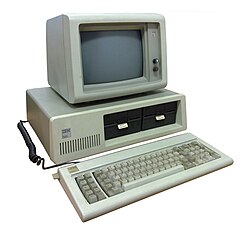Tips on Renting a Server
 Business equipment rentals usually make us think of laptops, computers, projectors and other equipment for the office. Equipments like servers are considered to be long-term investments, which is why many people don’t pay attention to the option of renting them. Here are a few reasons why you should consider renting a server.
Business equipment rentals usually make us think of laptops, computers, projectors and other equipment for the office. Equipments like servers are considered to be long-term investments, which is why many people don’t pay attention to the option of renting them. Here are a few reasons why you should consider renting a server.
Why should you rent servers?
It is usually considered better to purchase a network server or a file server, but purchasing servers may not be such a good idea for everybody all the time.
Training – Training is necessary whenever you hire new employees or every time there is an upgrade in your products or softwares. A lot of companies prefer to use a separate network server only to store the data and the software required to deal with extensive training programs. Unless you have constant training programs in your office, it is better to rent a server whenever there is a need.
Testing new software – Another scenario when companies should consider renting a server is when they test new software. Testing new software requires a lot of space and a having a server exclusively for this purpose will not hinder the work on other projects.
Moving your office – There are a lot of logistics issues involved in relocating your office that spell a headache. If you own the equipment, you’ll have to take utmost care in shipping such expensive devices and also bear the costs. Using rental equipment like computers, laptops, projectors, servers etc removes the burden of handling such issues in case of relocation.
Disaster plans – Server rentals can come as a great relief should you ever lose or damage your servers due to a fire accident or other natural disasters.
How to rent a server
Renting a server must be done with as much care as you would take while buying equipment. Here are a few tips on how you should choose a server for rent.
Consider OS and software used – Choose a server that can support the operating system and the software used on your network. Maintain clarity about what you require before you approach a rental service.
Server type- You can choose an inexpensive and simple low-range server for fewer systems or a mid-range server with dual-core processors, greater memory and other performance enhancing features, depending on your requirements.
Ensure data security- If you are using the temporary network server for connecting to the internet, you need to take proper precautions to prevent a virus attack on your network.
Speed requirements – Choose a server that can support a high-end processor if you want higher speed accessing the network. If you don’t have too many systems in your office, you could also settle for a basic server.
Additional requirements – In addition to the server, ensure that the rental provider also gives you accessories like cables, routers, storage arrays and wireless access points.
Before renting a server, check the vendor’s reliability and the rental prices. Make sure that you are being offered technical support as well as quick equipment replacement.









